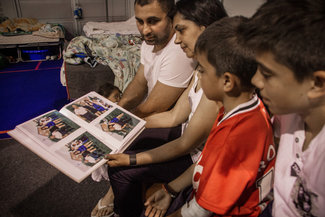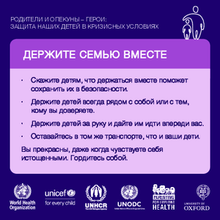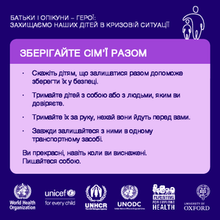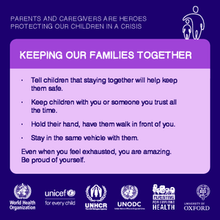

Displaying 271 - 280 of 1076
The Cabinet of Ministers of Ukraine has adopted a decision providing for the payment of subsistence assistance in the amount of UAH 3,000 per month to children who are internally displaced and moved without being accompanied by a legal representative.
Just over the zigzag pathway of the Tijuana border crossing, a mile or so from the taco and churros stands that feed locals and tourists alike, past the indigenous women sitting on the sun-scorched sidewalk and begging for change with infants at their breasts, rests a pop-up encampment for Ukrainian and Russian refugees fleeing an invasion they could neither endure nor support.
Tens of thousands of displaced children in Ukraine — as well as refugee children in surrounding nations — need financial and medical assistance from overseas and not adoption bids, experts in the field said this week.
A heartbreaking human drama is playing out along Ukraine's borders -- fleeing refugees pass the homesick going back, while others who left and then returned flee for their lives for a second time.
No country has taken more refugees per capita than Moldova, where people have opened their homes to Ukrainians. But the country faces challenges, including growing Russian pressure.
The UNHCR projects that some 8.3 million refugees will leave Ukraine, and the agency is calling for more financial support for them and their host countries.
The UNHCR now projects that some 8.3 million refugees will leave Ukraine, and the agency is calling for more financial support for them and their host countries.
This new set of evidence-based parenting tips were developed in response to the war in Ukraine and focus on the prevention of child trafficking and child sexual violence.



